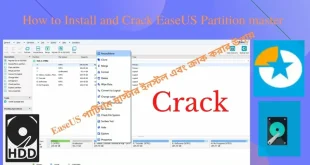Section 8 companies are non-profit organizations established to promote various charitable objectives, such as commerce, art, science, sports, education, research, social welfare, religion, or any other useful purpose. These companies aim to use their profits or any other income to promote their objectives rather than distributing them as dividends to shareholders.
If you’re looking to start a Section 8 company in India, here’s a comprehensive, step-by-step guide to help you through the process.
Understanding Section 8 Companies
What is a Section 8 Company?
A Section 8 company is similar to a Trust or Society but is registered under the Companies Act, 2013. It is named after Section 8 of the Companies Act, 2013. These companies do not aim to make a profit and are established for charitable purposes.
Benefits of Section 8 Companies:
- Exemptions: Exemption from some provisions of the Companies Act, 2013.
- Tax Benefits: Tax benefits under various sections of the Income Tax Act.
- Legal Status: Separate legal entity status, allowing the company to own property, incur debts, and enter into contracts.
- Credibility: Enhanced credibility and trustworthiness in the eyes of donors, government bodies, and the general public.
Pre-Registration Requirements
Directors:
- A minimum of two directors if it is to be incorporated as a private limited company.
- A minimum of three directors if it is to be incorporated as a public limited company.
- Directors must have Director Identification Numbers (DIN).
Members:
- A minimum of two members if it is to be incorporated as a private limited company.
- A minimum of seven members if it is to be incorporated as a public limited company.
Documents Required:
- Digital Signature Certificate (DSC) of the directors.
- Director Identification Number (DIN) of the directors.
- Memorandum of Association (MOA) and Articles of Association (AOA).
- ID proofs and address proofs of directors and members.
- Proof of address of the registered office.
Steps to Register a Section 8 Company
Step 1: Obtain Digital Signature Certificate (DSC)
The first step for section 8 company registration is to get the DSC for all proposed directors of the company. This is required for signing the online forms.
Step 2: Obtain Director Identification Number (DIN)
Apply for DIN for all the proposed directors if they don’t already have one. DIN can be applied through the SPICe+ form along with the company registration application.
Step 3: Name Reservation
Apply for name approval through the RUN (Reserve Unique Name) web service. Ensure the name is unique and not similar to any existing company or trademark.
Step 4: Drafting of MOA and AOA
Draft the Memorandum of Association (MOA) and Articles of Association (AOA). Ensure that the objectives mentioned in the MOA clearly indicate the charitable purpose.
Step 5: Filing Form SPICe+
Fill out the SPICe+ form on the MCA portal. This form includes details about the company, directors, subscribers, and the registered office. Attach the required documents and submit the form.
Step 6: Issuance of Incorporation Certificate
If all the documents and forms are in order, the Registrar of Companies (RoC) will issue the Certificate of Incorporation. The company will also receive a Corporate Identity Number (CIN).
Step 7: Apply for PAN and TAN
Once the incorporation certificate is received, apply for the Permanent Account Number (PAN) and Tax Deduction and Collection Account Number (TAN) for the company.
Post-Registration Compliance
Annual Compliance:
- Section 8 companies must comply with annual filing requirements, including filing financial statements, annual returns, and other necessary forms with the RoC.
- Maintain proper books of accounts and get the accounts audited every year.
Income Tax Compliance:
- Section 8 companies are eligible for various tax exemptions but must comply with specific provisions under the Income Tax Act.
- File income tax returns annually.
Maintaining Statutory Registers:
- Maintain statutory registers, including the register of members, register of directors, and minutes of board and general meetings.
Benefits of Registering as a Section 8 Company
Tax Exemptions:
Section 8 companies can avail various tax exemptions under the Income Tax Act, such as exemptions under Section 80G for donations received.
Legal Entity:
Being a separate legal entity, a Section 8 company can enter into contracts, own property, and incur debts.
Credibility:
These companies are perceived as more credible than other forms of non-profit organizations due to their compliance with the stringent regulations of the Companies Act.
Transferability of Ownership:
Ownership can be easily transferred through the transfer of shares, subject to the approval of the board.
Common Challenges and Solutions
Understanding Legal Provisions:
Legal provisions related to Section 8 companies can be complex. It is advisable to seek professional help from a Chartered Accountant or Company Secretary.
Documentation:
Proper documentation is crucial for the registration process. Ensure all documents are accurate and up-to-date.
Compliance:
Staying compliant with annual and tax filing requirements is essential. Consider hiring a professional for ongoing compliance management.
Additional Information on Section 8 Companies
Funding and Grants:
Section 8 companies are eligible for funding and grants from various government and non-government organizations. It is important to understand the criteria for these funds and apply accordingly.
Foreign Contribution Regulation Act (FCRA):
If a Section 8 company intends to receive foreign contributions, it must comply with the Foreign Contribution Regulation Act (FCRA). This involves obtaining FCRA registration or prior permission from the Ministry of Home Affairs.
Corporate Social Responsibility (CSR):
Section 8 companies can benefit from CSR funds. Corporates in India with a certain turnover or profitability are mandated to spend a portion of their profits on CSR activities. Section 8 companies can collaborate with these corporates for funding.
Compliance with Labour Laws:
Ensure compliance with labour laws if your Section 8 company employs staff. This includes adhering to laws related to minimum wages, provident fund, gratuity, and other employee benefits.
Board Meetings and General Meetings:
Section 8 companies must hold regular board meetings and annual general meetings (AGM). Minutes of these meetings should be recorded and maintained as part of statutory compliance.
Reports and Disclosures:
Prepare and submit various reports and disclosures required under the Companies Act and other regulations. This includes financial statements, auditor’s reports, and annual returns.
Also read : Society registration
Conclusion
Starting a Section 8 company is a noble endeavor that allows you to contribute to society in a structured and legally recognized manner. While the registration process involves several steps and requires thorough documentation, the benefits, including tax exemptions and increased credibility, make it worthwhile. By following the steps outlined in this guide and seeking professional help where necessary, you can successfully register and run a Section 8 company in India.
Remember, the key to a successful Section 8 company lies in clear objectives, proper management, and strict compliance with legal requirements. With dedication and the right approach, your non-profit organization can make a significant impact on society.
Also read : Discover the Benefits of Natural Skin Care Products
Key Takeaways:
- Understand the purpose and benefits of a Section 8 company.
- Ensure compliance with pre-registration requirements and documentations.
- Follow the step-by-step registration process.
- Adhere to post-registration compliance and maintain proper records.
- Seek professional help to navigate legal and regulatory complexities.
By staying informed and proactive, you can establish and sustain a Section 8 company that truly makes a difference.
Also read : 10 Key Techniques For Conquering
 Daily Blogger News Stay updated with the latest trends and insights. Your reliable source for daily updates and information.
Daily Blogger News Stay updated with the latest trends and insights. Your reliable source for daily updates and information.







